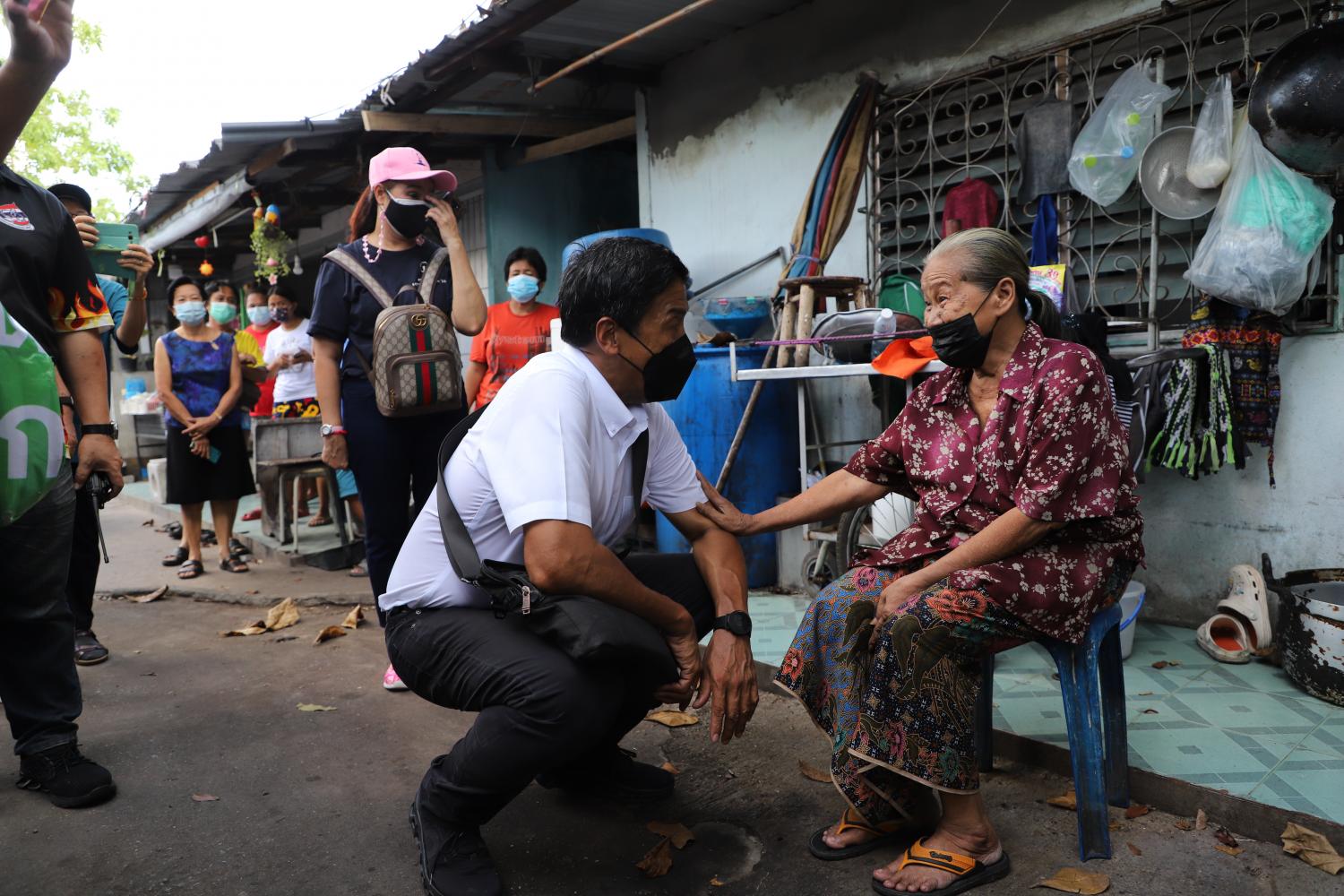
In countries where integrity, competence and popular legitimacy in leadership are valued -- for example, in Scandinavia, Singapore or Taiwan -- Bangkok governor Chadchart Sittipunt would be considered fairly average. He would merely be another good leader who exudes modesty, humility, capability and authenticity, always in touch with and answerable to his constituents.
But in Thailand, Mr Chadchart has become a "superman-like" figure, appearing everywhere to address crises big and small all over the Bangkok metropolis and garnering legions of admirers and followers in the process.
In just two months, Mr Chadchart has become a political juggernaut who has led the Bangkok Metropolitan Administration (BMA) to new heights and thereby taken Thailand by storm. In so doing, he has unwittingly opened up three precarious avenues for himself. Whether he will last the entire four-year term as Bangkok governor is now doubtful, because Mr Chadchart has unintentionally unleashed forces beyond his control.
Let's start with what's right about him. Apart from being elected by more than 52% of Bangkokians, more than the other 30 candidates combined, the new governor brings to office everything that is outside the box. His down-to-earth style and ease with people have provided unprecedented public access to leadership. His ways and means have turned into a kind of "reality governorship", whose performance can be viewed daily, thanks to social media technology.
Mr Chadchart has utilised the power of imagination by enticing people to reach higher and achieve more. He goes everywhere telling people to collaborate and work together to get things done, find answers collectively, mitigate crises, and other ways of self-improvement and community development. When the media asked if he needs more rest because of his constant overtime, he said many ordinary people he saw were working harder than him, getting up earlier and going to bed later.
The new governor is introducing unprecedented means and levels of transparency and accountability. Apart from his so-called "reality governorship", he is about to put the BMA budget online, a move beyond imagination in Thailand's officialdom. The budget has been prone and open prey to graft opportunities. Turning the more than 70 billion baht of Bangkok's budget into open access for public scrutiny will revolutionise the old ways of thinking and doing things in Thailand.
There is also his power of inspiration. On one inspection outing, Mr Chadchart greeted prisoners who were dredging sewers for public service with a Thai wai as though they were on equal footing. Such public displays of egalitarianism are rare, possibly hitherto absent, among leaders in Thailand's steeply hierarchical society. His leadership has now enticed other provinces to want their own directly elected governors. His initiative to organise music festivals in public parks has compelled the Royal Thai Army to do the same, suggesting emulation is the ultimate compliment.
Unsurprisingly, Mr Chadchart has also garnered critics and detractors who covet his massive popularity and management effectiveness and are threatened by them. His leadership style has made Prime Minister Prayut Chan-o-cha look inferior and incompetent. With his hands-on handling of a fire that gutted low-income homes in the Bon Kai area on Rama IV Road near Lumpini Park, the governor was so responsive and empathetic that Gen Prayut had to come out and say something charitable about the grievances and livelihoods of low-income dwellers. A privy councillor also showed up at Bon Kai soon after the fire to give relief packages to inhabitants in the area.
In a short time, Mr Chadchart has made such a huge difference. His options going forward will thus be challenging.
The baseline prospect is that he continues to serve out four years as Bangkok's most effective and efficient governor this country has ever seen. Doing so would make the capital greener and cleaner, more liveable and attractive, with a quality of life previously unheard of. In this case, he would remain a leader and politician within the limited scope of Bangkok, away from the national political stage.
Another scenario would see Mr Chadchart being called and recruited into national politics, perhaps even in the upcoming general election to be held before next July. All of the main political parties would be eager to have him on board, as any party would gain from "Chadchart fever". This is not his preferred option, as he joined the Bangkok gubernatorial race to choose his own arena and avoid the rough-and-tumble of mudslinging and gutter politics at the national level.
But it is not uncommon for city mayors who prove effective and popular to enter the national stage and win top office. Indonesian President Joko Widodo is a case in point. This path would be tricky and complicated as Mr Chadchart would have to make compromises and trade-offs to rise to the top. Although he has shown no sign of preferring this option, there are already calls for him to lead the country, not just Bangkok, in view of Thailand's political decay and economic stagnation.
Another eventuality could be that he gets derailed. As he outshines and outperforms regime leaders and their backers, who rose to power after the May 2014 military coup, Mr Chadchart is seen as a threat because of his popularity and ability to govern. It does not matter that he is seen as honest and straightforward. His problem could be that he ends up not just good but outstanding, which incurs jealousy and resentment. While he has been accommodating to the current regime, he may end up not kowtowing enough to please them.
This scenario will grow in likelihood as Mr Chadchart's popularity builds in view of his national political prospects. Thailand has been known to have disqualified a sitting prime minister before, and so if there's a power play to get rid of him, it can happen. All of these three scenarios facing Mr Chadchart suggest we can expect political tensions to heighten just because he is the kind of leader the Thai people have been looking for.







